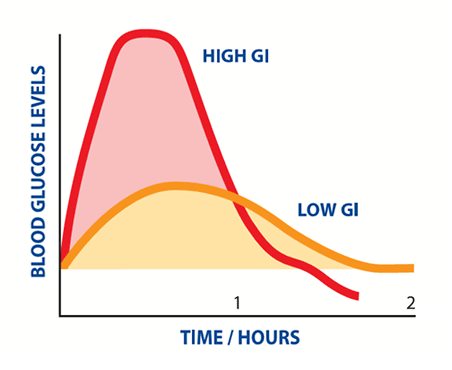I have a confession. I am a man. The worst? I’m actually proud to be a man and I like being masculine
I have a confession to make.
This isn’t easy, and I’ve taken a long time to summons up the strength to do it.
I’m aware that just by admitting to what I’m about to admit, I will subject myself to all manner of global shame and ridicule.
I’ll be taunted, abused, shunned and reviled.
But as Sir Winston Churchill once so rightly said: ‘You have enemies? Good. That means you’ve stood up for something, sometime in your life.’
OK, here goes…
I am a man.
Yes, on International Men’s Day 2018, I am hereby identifying as the biological sex that I was born to.
This alone is enough to risk making me a social pariah these days, but that’s not even the worst of it.
I’m a man who’s actually proud of being a man, and who also likes being MASCULINE.
Sorry.
I realise this is a horrendous thing to say, and I can only offer my insincere apologies to all the radical feminists now exploding with rage as they read my shocking statement.
If there’s one thing they loathe even more than the M-word, it’s the longer M-word.
But why?
Masculinity simply means ‘having qualities or appearances traditionally associated with men.’
That’s it, nothing more sinister.
Yet thanks to women of radical feminist persuasion who’ve gleefully hijacked the #MeToo and #TimesUp campaigns to serve their own man-hating purpose, masculinity has become the most controversial, detestable word in the English lexicon.
And it’s now impossible to be ‘masculine’ without also being accused of ‘toxic masculinity’.
Radical feminists (here’s Madonna in her shirt touting her ‘radical’ position) have hijacked the #MeToo and #TimesUp campaigns to serve their own man-hating purpose, masculinity has become the most controversial, detestable word in the English lexicon
Even Prince Charming whisking Cinderella off from captive hell to a life of happiness is an evil that must be expunged from society – led by furious Keira Knightley and her ultra-feminist knights in PC armour.
‘Cinderella waits for a rich guy to rescue her,’ she sneered. ‘Don’t. Rescue yourself! Obviously!’
Fine empowering words until you remember that the Prince gallantly saved Cinderella from abuse and slavery and they genuinely loved each other.
Then it doesn’t seem quite so ‘obvious’, does it?
One of the very worst of the many terrible things about radical feminism is the scourge of pathetic male virtue-signallers that urge them on.
As an obvious (or so I thought..) tongue-in-cheek joke this morning, I tweeted: ‘Happy #InternationalMensDay! Stay strong lads, we’re not illegal – yet.’
Most people reacted in the way I would react if someone else had tweeted that – by laughing.
Others weren’t so amused, bombarding me with hateful abuse about my supposed ‘toxic masculinity’.
A man named Box Brown, who has a verified Twitter account and claims to be a New York Times best-selling cartoonist, replied simply: ‘Die.’
How laughably hypocritical; this angry little clown races to attack what he presumably perceives to be my aggressive maleness, yet does so by saying he wants me dead.
Hypocrisy is sadly a prevalent theme with much of modern feminism.
The likes of Kim Kardashian and Emily Ratajkowski have both built hugely lucrative careers out of stripping off in the supposed name of ‘feminist empowerment’.
Hypocrisy is sadly a prevalent theme with much of modern feminism. Kim Kardashian and Emily Ratajkowski have built lucrative careers out of stripping off for ‘feminist empowerment’
When in fact what they’re really doing is selling nudity and sex.
I have no problem with that – just don’t pretend it benefits any other woman or is anything that Emmeline Pankhurst and her Suffragettes would have ever done.
They were too busy risking their lives to win women the right to vote than to have time to writhe naked in spaghetti and ludicrously claim they were doing so to liberate womankind.
When I say this kind of thing, women ask me to cite an example of what I consider real feminist empowerment.
So let me give you one from yesterday when a 17-year old German girl driver named Sophia Flörsch was competing in her first Formula 3 World Cup race at the Macau Grand Prix.
The race featured male and female drivers, and she qualified purely on merit.
On the fourth lap, she struck another driver’s car as she approached a bend at 175mph.
The collision caused Sophia’s car to spin out of control and catapult several hundred yards through the air into a wall.
It’s the most horrifying car crash I have ever seen, and everyone who watches it would presume she must have died.
But Sophia lived, despite fracturing her spine.
And within a few hours, she tweeted: ‘Just wanted to let everybody know that I am fine but will be going into surgery tomorrow morning. Thanks to everybody for the supporting messages. Update soon.’
No fuss, no playing the victim.
Can you even imagine the scale of self-pitying hell that would be unleashed on the unsuspecting public if any of the Kardashians had a minor 25mph car prang today in which they broke a diamond-encrusted toenail?
Sophia has an incredible talent for driving a car, and incredible courage too. She is a rising star in a male-dominated sport determined to prove she can mix it with the men and I applaud her for it.
THAT is true feminist empowerment – not flipping the bird in topless selfies to millions of impressionable young girls.
While I joke about International Men’s Day, of course I understand and appreciate there is a very serious side to it too.
The stats tell the grim story: 76% of suicides are men, 85% of homeless people are men, 70% of homicide victims are men, men serve 64% longer in prison and are 3.4x more likely to be imprisoned than women when both committed the same crime.
So it’s not all a patriarchal bed of roses being a man.
But I fully accept that women have historically been treated unfairly in terms of equality, and that many women continue to be treated unfairly.
I also fully accept that women have been subjected to far more harassment, sexual abuse and domestic violence than men.
That is where the #MeToo and #TimesUp movements have performed a valuable public service in highlighting and exposing genuinely bad, unacceptable and in some cases criminal behaviour.
In fact, I don’t know any of my male friends who wouldn’t agree with that.
However, what I refuse to accept is that all masculinity is therefore now automatically a bad thing or that being a man is suddenly something to be ashamed about.
Nor do I believe that most women actually want the kind of neutered, emasculated, papoose-clad, permanently apologising doormats that radical feminists are trying to make us become.
Let me therefore offer some friendly advice from a man who loves women:
Men like me don’t want to hear that universities (and one in Wales, UK actually did this,.) have banned the word ‘mankind’ because it’s offensive to women, not least because ‘women’ itself contains the word ‘men’.
We don’t want to be told we can’t appreciate a female star’s beauty because it’s offensive to feminists, then see feminists like Ellen de Generes openly objectifying famous men’s bodies at awards shows – to no complaint.
We don’t want to be informed that James Bond has to stop hitting on women because it’s now deemed politically incorrect, especially as none of the women he ever hits on seem to be anything but ecstatically thrilled about it.
We don’t want to be disapprovingly frowned at for opening doors for women or standing up for them on trains or when they walk into a room, or paying the bill for dinner if we want to. Chivalry is a good, not oppressive thing.
We want to pride ourselves on being a protective modern day hunter and provider, in whatever capacity that manifests itself to the benefit of a woman or family – without promptly being labelled a ‘dinosaur’ or ‘caveman’.
We’d like to preserve the right not to be seen blubbing in public every five minutes just to prove we’re in touch with our emotional side.
In short, we’d just like to still enjoy being men if that’s OK?
Just as we’d like women to enjoy being women.. and yes, for gender-fluids to enjoy being men AND women if that makes them happy.
The best conversation I’ve had about all this was with the singer Annie Lennox who said it was ‘important to bring men with you’ on the feminist journey.
‘But,’ she cautioned, ‘the debate has to be less hostile to men for that to happen.’
Exactly.

 BarakAllahu feeh
BarakAllahu feeh Maymoon Ibn Mehran says RH: “Being entrusted to look after Baytul Maal (treasures of the whole country), would be easier for me than being told to look after a woman” (siyar a’alam 5/77)
Maymoon Ibn Mehran says RH: “Being entrusted to look after Baytul Maal (treasures of the whole country), would be easier for me than being told to look after a woman” (siyar a’alam 5/77) Did the Prophet (Peace and blessings be upon him) say anything about saving our planet? Did he promote any ideas or practices relevant to the world’s growing concern about the future of the earth and its resources?
Did the Prophet (Peace and blessings be upon him) say anything about saving our planet? Did he promote any ideas or practices relevant to the world’s growing concern about the future of the earth and its resources?













